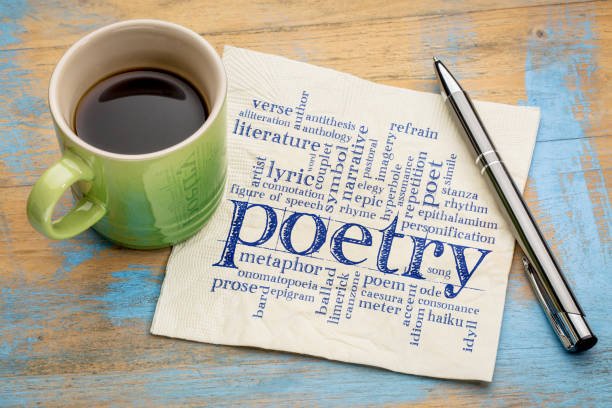Why do People Write Poems Today?
Title: The Essence of Contemporary Poetry: Why People Write Poems Today
In the age of digital communication, instant messaging, and viral tweets, the art of poetry, with its profound nuances, metaphoric layers, and rhythmic allure, retains its vibrant relevance. But why do people still choose to write poems today, when there are so many faster, more direct, and arguably more efficient ways to communicate?
Why do People Write Poems Today
People write poems today because poetry offers a unique form of self-expression and communication. Poetry allows writers to explore and articulate their feelings, ideas, experiences, and perceptions in a creative and nuanced way. It provides a space for introspection, healing, and growth, often helping people make sense of complex emotions or experiences.
Moreover, poetry can act as a means of social and political engagement. Many poets use their work to comment on social issues, express political dissent, or advocate for change. This way, poetry can give voice to marginalized experiences and bring attention to important issues.
Poetry also enables the celebration and preservation of cultural heritage. Poets often write to honour their traditions, language, history, and shared experiences, contributing to the sense of community and identity.
Finally, poetry is written for the sheer love of language and the craft of writing. Poets enjoy playing with words, rhythms, sounds, and imagery to create pieces that are not only meaningful but also aesthetically pleasing. This artistic pleasure and fulfillment is a key driving force for many poets.
Poetry as a Means of Self-Expression
At its core, poetry is a deeply personal form of expression. It’s a way for people to convey their innermost thoughts, feelings, and experiences in a manner that’s both elegant and impactful. Unlike prose, poetry gives writers a vast canvas for creative exploration. They can experiment with rhythm, rhyme, and metaphor to create a piece that resonates on multiple levels. In our increasingly noisy and busy world, poetry allows individuals to reflect, introspect, and express themselves in their unique voice.
Exploration and Critique of Society and Culture
Poetry often serves as a powerful platform for social and cultural commentary. Contemporary poets use their verses to delve into societal issues, critique cultural norms, and express political views. They hold a mirror up to society, offering an incisive examination of its virtues and vices. By tackling themes of race, gender, inequality, and environmental crisis, among others, poets contribute to the ongoing dialogues about these important topics, prompting readers to engage in critical thinking and social engagement.
Emotional Catharsis
A significant reason why people write poems today is emotional catharsis. The process of writing a poem can be intensely therapeutic. It allows the poet to grapple with feelings of joy, sorrow, anger, love, or loss, and articulate them in ways that prose may not allow. By committing these emotions to paper, poets can find clarity and closure. Readers, too, can find solace in these words, drawing comfort from the knowledge that they are not alone in their experiences.
The Search for Beauty and Meaning
Human beings are inherently drawn to beauty, and there is a particular aesthetic appeal to a well-crafted poem. The rhythmic cadence, the careful choice of words, the vivid imagery – all combine to create an experience that can be deeply moving. Moreover, in a world often perceived as chaotic and random, poetry offers a way to seek patterns, connections, and meanings. The act of writing poetry is, in many ways, a philosophical pursuit, a quest for understanding the essence of life and the human experience.
Preservation and Evolution of Language
Poetry also plays a crucial role in preserving and evolving language. Poets experiment with words, phrases, idioms, and syntactic structures, thus enriching the linguistic tapestry. In the age of short-form communication and emoji-language, poetry serves as a bastion of linguistic diversity and sophistication.
The reasons why people write poems today are as varied and profound as the poets themselves. Despite the digital age’s rapid pace, poetry remains a cherished form of expression, a beacon of human emotion and thought, a platform for social critique, and a sanctuary for linguistic beauty. As long as people continue to seek self-expression, grapple with societal issues, desire emotional catharsis, and pursue beauty and meaning, poetry will continue to thrive. Its existence is a testament to the depth, complexity, and beauty of the human experience, etched in words that stir the soul and provoke the mind.

